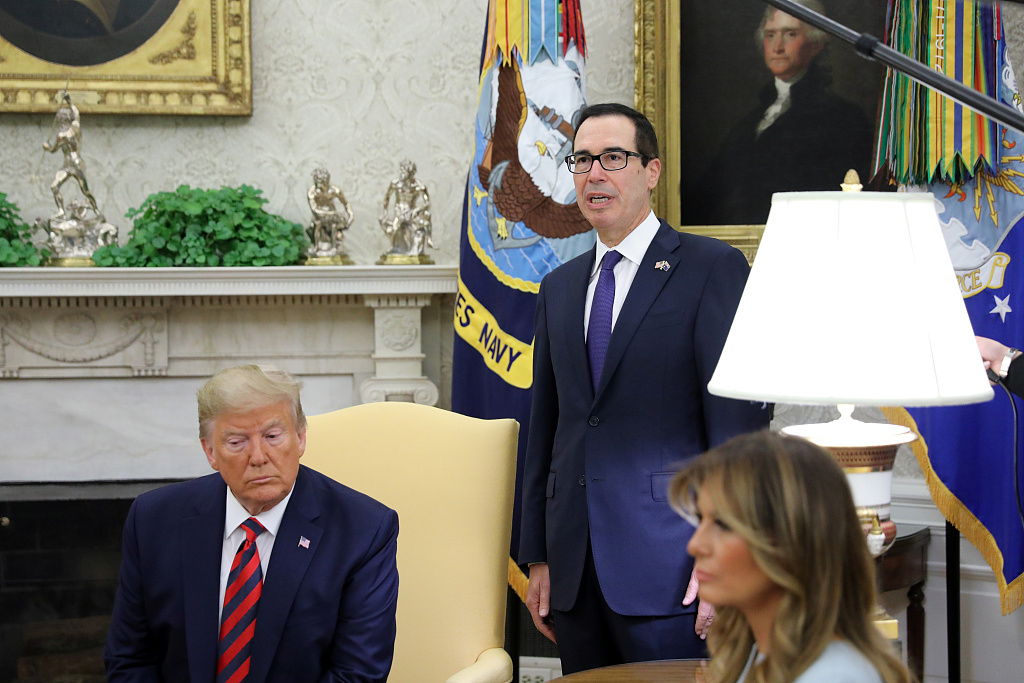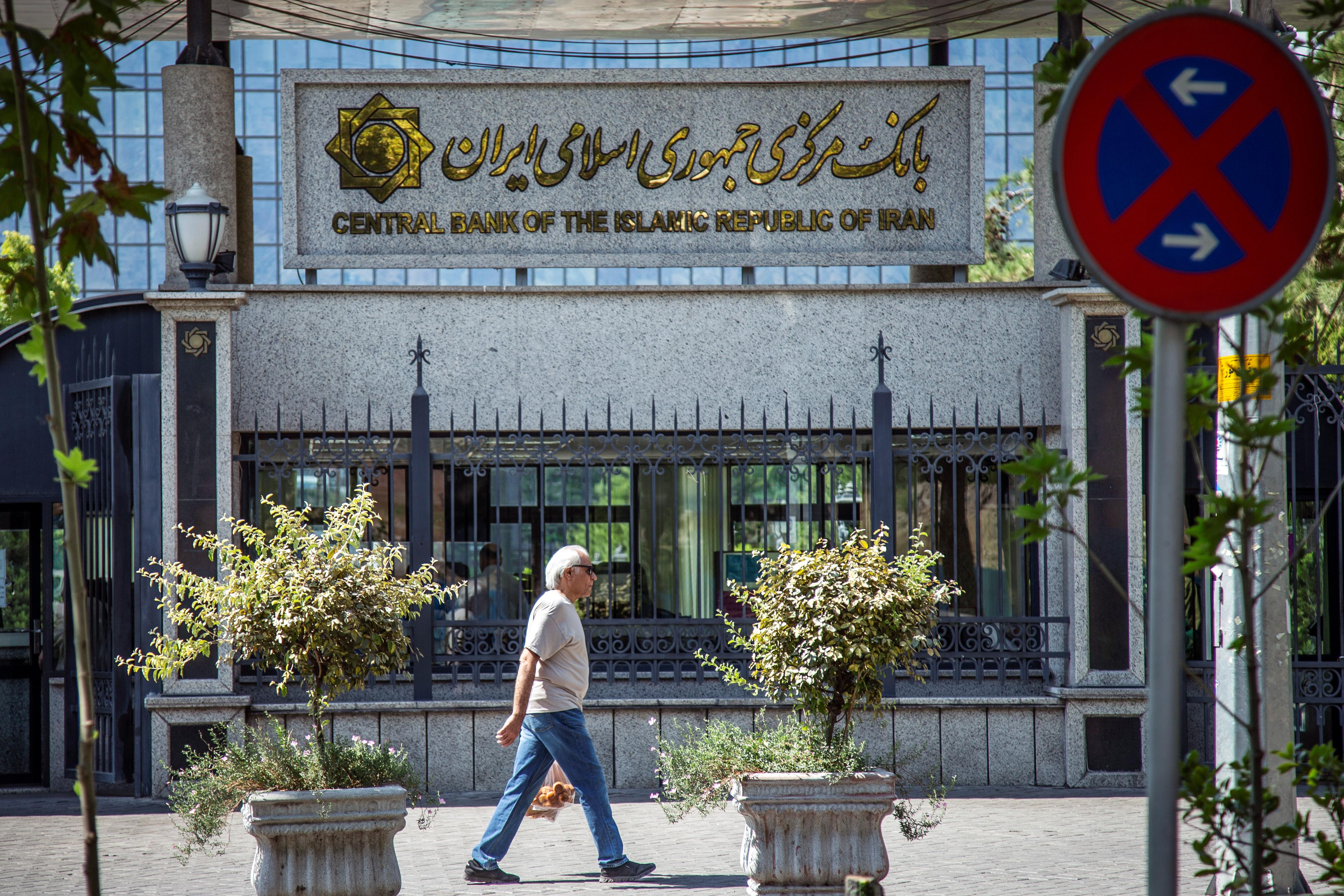U.S. President Donald Trump on Friday announced new sanctions on Iran that he said were the toughest ever against another country but indicated he did not plan a military strike, calling restraint a sign of strength.
The Treasury Department renewed action against Iran's central bank after U.S. officials said that Tehran carried out weekend attacks on rival Saudi Arabia's oil infrastructure, which triggered a spike in global crude prices.
"We have just sanctioned the Iranian national bank," Trump told reporters in the Oval Office. "These are the highest sanctions ever imposed on a country."
But Trump indicated he did not plan a military response, attacking both critics who thought the mogul turned president would trigger war and hawks seeking a military response.
"I could do it right here in front of you. And that would be it. And then you would have a nice, big story to report," he said.
"But I think the strong-person approach and the thing that does show strength would be showing a little bit of restraint," he said.
"Much easier to do it the other way. It's much easier. And Iran knows if they misbehave, they're on borrowed time," he said.
Trump in June authorized a military strike after Iran shot down a U.S. drone, only to call it off at the last moment.
He recently said that he hopes for talks with Rouhani, who responded that Trump must first ease sanctions.

U.S. President Donald Trump looks on during a press conference with Australian Prime Minister Scott Morrison in the East Room of the White House in Washington, D.C., U.S., on September 20, 2019. /VCG Photo
U.S. President Donald Trump looks on during a press conference with Australian Prime Minister Scott Morrison in the East Room of the White House in Washington, D.C., U.S., on September 20, 2019. /VCG Photo
U.S. Treasury Secretary Steven Mnuchin, accompanying Trump in the Oval office, said the central bank was Tehran's last source of funds.
"We've now cut off all source of funds to Iran," he added.
U.S. Treasury later announced in a statement that it has blacklisted Iran's central bank and its national development fund, which it claimed have been used to "move Iran's foreign currency reserves for terrorist proxies."
Etemad Tejarate Pars, an Iran-based company, was also designated as Washington accused it of concealing financial transfers for the Iranian government's military purchases.
Mnuchin claimed in the statement that Treasury's action was part of the U.S. "maximum pressure campaign against Iran," also alleging that Iran's attack against Saudi Arabia is "unacceptable."

U.S. Treasury Secretary Steven Mnuchin announces sanctions on the Central Bank of Iran as he stands behind U.S. President Donald Trump at the White House in Washington, D.C., U.S., on September 20, 2019. /VCG Photo
U.S. Treasury Secretary Steven Mnuchin announces sanctions on the Central Bank of Iran as he stands behind U.S. President Donald Trump at the White House in Washington, D.C., U.S., on September 20, 2019. /VCG Photo
Washington has been indicating that Iran was behind recent drone attacks on oil production facilities in eastern Saudi Arabia, a claim that has been strongly denied by Tehran.
The latest punishment came two days after Trump revealed in a tweet that he had instructed Mnuchin to "substantially increase Sanctions on the country of Iran."
Following its unilateral exit from the 2015 Iran nuclear deal last year, Washington has been piling up pressure on Tehran through a series of sanctions in an effort to force it to return to negotiations. Iran, however, maintains a tough stance and vows to retaliate against the United States' anti-Iran moves.
Iran: U.S. has no 'leverage'
Iran's central bank governor said Friday that new US sanctions against the lender are a symptom of Washington's inability to exert "leverage," state news agency IRNA reported.
"The US administration sanctioning the central bank again shows how empty their hands are in finding leverage against Iran," IRNA quoted central bank governor Abdolnaser Hemmati as saying.
Hemmati contended that if US sanctions were effective, Iran's "economic condition would have been very different from what it is now."

A man walks past the Central bank of Iran in Tehran, Iran August 1, 2019. /Reuters Photo
A man walks past the Central bank of Iran in Tehran, Iran August 1, 2019. /Reuters Photo
U.S. to send troops to bolster Saudi defenses
Trump has also approved sending American troops to bolster Saudi Arabia's air defenses after Saturday's attacks on the kingdom's oil facilities, the Pentagon said on Friday.
The Pentagon said the deployment would involve a moderate number of troops and would be primarily defensive in nature.
U.S. Marine General Joseph Dunford, chairman of the Joint Chiefs of Staff, said the deployment would not reach thousands of forces but he declined to be more specific.
"In response to the kingdom's request, the president has approved the deployment of U.S. forces, which will be defensive in nature and primarily focused on air and missile defense," U.S. Defense Secretary Mark Esper also said at a news briefing.
"We will also work to accelerate the delivery of military equipment to the kingdom of Saudi Arabia and the UAE to enhance their ability to defend themselves."
(With input from agencies)
(Cover: U.S. President Donald Trump speaks to reporters as he meets with Australia's Prime Minister Scott Morrison in the Oval Office of the White House in Washington, D.C., U.S. on September 20, 2019. /Reuters Photo)